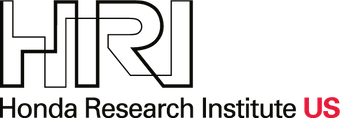Optimal Function and Attention Allocation for Human-AI Collaboration using Computational Cognition-Work Model
IEEE Conference on Decision and Control (CDC)
The paper presents a computational model-based optimization framework for function and attention allocation in collaborative control and decision-making between a human and artificial intelligence (AI). Effective human-AI collaboration (HAC) may depend on structured adaptive function allocation among team members to enhance performance while managing human cognitive limitations, especially attention. Integrating attention allocation is vital for maintaining situation awareness and reducing human workload. Various allocation methods rely on heuristics and experimental studies that demand significant resources and domain expertise. To address the function and attention allocation problem in HAC through a systematic approach, we propose the computational cognition work model (CCWM)-based framework. The framework can integrate a qualitative work model and cognitive models to simulate complex team dynamics in temporal semantics. An optimization technique can then improve any task-oriented metrics by exploring the team structure and simulated episodes without requiring exhaustive experimental studies. We present numerical evaluations to demonstrate the proposed framework using a disaster relief drone fleet operation scenario, which provides valuable insights into the early stages of HAC design and the broader domain of HAC.
